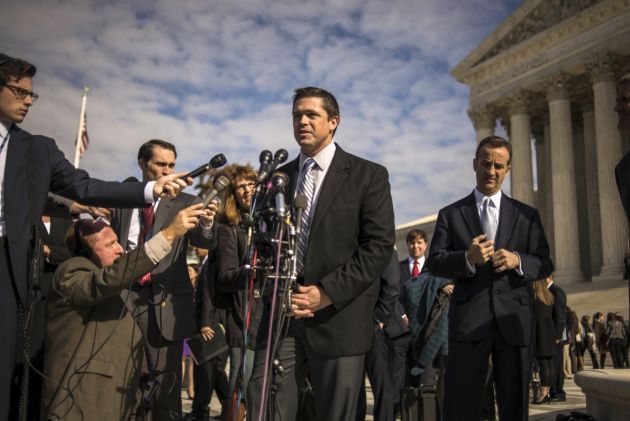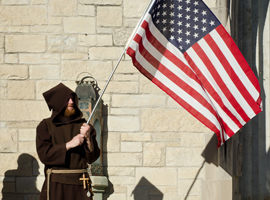Archbishop urges vigilance against US religious freedom threats

Despite escalating violent religious persecution in the Middle East and Africa, it is vital for Christians in the U.S. to remain on guard of their own freedoms, Archbishop William Lori of Baltimore has said.
"I'm not given to apocalyptic predictions, but I do believe that we have to be vigilant," Lori said in an interview with the Catholic News Agency.
"It's easy to see that the threats to religious liberty in the West are starting to constrict religion more and more."
The archbishop is chairman of the U.S. bishop conference's ad hoc committee on religious freedom as well as the supreme chaplain of the Knights of Columbus.
He spoke with CNA in early August at the Knights of Columbus Supreme Convention in Florida.
Lore noted two main challenges in relation religious freedom in the United States, and the first is the increasingly popular view of seeing religion as a purely private affair.
"(Religion is seen) as reducible simply and solely to freedom of worship, the sentiment that as long as you're in church, do what you want, but don't think about bringing religious values into public, into your place of work, into the political discussion," he said.
This "freedom of worship" mentality is the root of the problem of religious freedom in the West, the archbishop said, and the other major challenge is the diminished view of the human person.

"One's relationship with God and with the faith is thought to be a limitation, is thought to be a sort of an imposition of the human person," he said.
"In order to be free, you need to be free of God and free of religion, therefore religious freedom in society is no longer a value."
These root problems then take on many forms, from federal and state mandates restricting conscience rights regarding contraception to various threats posed by "gay marriage" advances, he said.
The importance of being vigilant and aware of potential domestic religious persecution can be difficult to see when it takes on a much more violent and visible form in other countries, he acknowledged.
"It's a hard sell," said Lori, "because churches are open here, Catholic Charities are functioning, nobody's being imprisoned, so people will say, 'Where's the problem here?'"
But although there has been little to no physical violence in the West, the problems facing religious freedom there are no less real, he said.
"The threats are more subtle (in the West), many people don't even perceive them, they happen bureaucratically, or legislatively, or judicially," the archbishop told CNA.
"Whereas in other parts of the world...it's bloody, violent, overt, but in both cases it's a denial of the rights of conscience, it's a denial of the fundamental freedom to relate to one's own God."
"We have to keep the flame of faith and freedom alive as an act of solidarity with those who are suffering so terribly around the world."